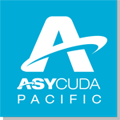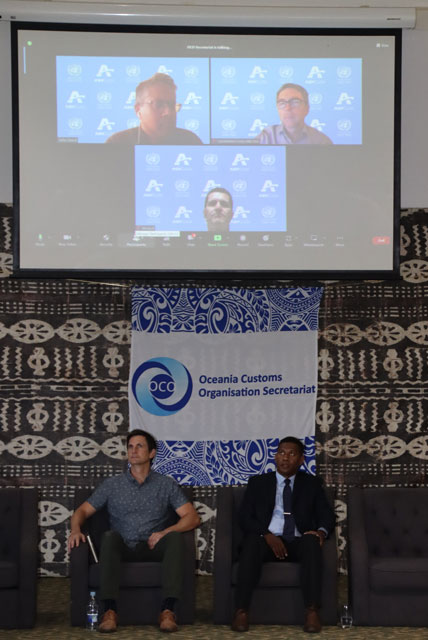Back-to-back Category 4 cyclones and an earthquake within a 48-hour period in Vanuatu resulted in an influx of international humanitarian assistance to the country in March 2023. This placed utmost importance in hastening the deployment of the Automated System for Relief Emergency Consignments (ASYREC) to expedite the movement of humanitarian supplies into the communities.
Developed by the United Nations Conference on Trade and Development (UNCTAD), ASYCUDA Programme in collaboration with the United Nations Office for the Coordinator of Humanitarian Affairs (OCHA), ASYREC would facilitate and speed up the processing of international humanitarian relief in the event of a crisis, ensuring that humanitarian response would be logistically efficient and effective.
ASYREC was launched by the Department of Customs and Inland Revenue (DCIR) in partnership with the National Disaster Management Office (NDMO) and the Australia Governance for Growth (GfG) Programme during the Customs Modernization Workshop hosted by the Oceania Customs Organization (OCO) in Port Vila on 21 April 2023.
As an island nation lying on an active tectonic plate boundary, Vanuatu similar to other Pacific countries is exposed to cyclones, flooding, droughts, rising sea levels, as well as seismic and volcanic activities. Therefore, it is not uncommon for the country to deal with multiple emergencies that may require overlapping or different levels of assistance.
ASYREC would be automatically activated when the affected country makes a request for international assistance or accepts an offer of international assistance. It would make it easier for customs authorities to identify and separate humanitarian shipment from non-humanitarian goods.
For Vanuatu Government, the module would enable better management and control of humanitarian relief consignments and would minimize unsolicited goods through the identification of priorities at an early stage and updated during emergency situations. It would also enhance coordination and cooperation between Customs and eligible organisations, providing real-time emergency related information to all associated organizations.
For the Humanitarian community, ASYREC would provide consistency, improve accountability, allow faster clearance time, and promote best practice while ensuring that processing of humanitarian relief was according to the provisions of Vanuatu’s Customs laws and other health and safety regulations. With ASYREC, shipments of identified needs by eligible organizations would be prioritized during emergencies, minimizing delays and reducing congestion at the border.
Director of Vanuatu’s Department of Customs and Inland Revenue, Mr Harold Tarosa said that lack of coordination among agencies for disaster relief supplies had been a pressing issue through the last cyclones and especially during Tropical Cyclone Pam in 2015.
“In the past, in most cases, each agency has to have their own recovery and distribution plans in terms of coordination, which often prolonged the distribution of relief supplies especially to communities in the islands,” he said.
Mr Tarosa added that an aspect of their continuous improvement was to automate the process by which disaster relief supplies were distributed. This module would enable better facilitation of warehouse distributions and the logistic supply chain work right down to all affected communities, ensuring humanitarian aid reach the intended beneficiaries, and ultimately save lives.


